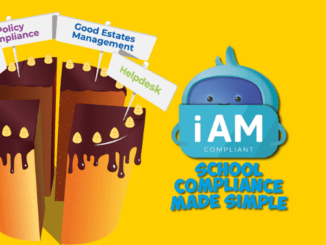
Securing a position as a school business manager requires a unique blend of skills and a thorough understanding of both educational environments and business operations. In this article, Kevin Parker offers guidance on the art of interview preparation
The role demands a professional who can navigate financial management, human resources and administrative duties with equal proficiency. To stand out in the competitive field, candidates must excel in the interview process, which necessitates comprehensive preparation. Here’s a guide on what effective preparation looks like and how to excel in interviews for school business manager roles.
Understanding the Role
First and foremost, a candidate must have a clear understanding of the SBM role. This involves more than just reading the job description. Research the specific school and Local Authority/Trust – its size, student population and particular challenges it faces such as pupil demographic, location and data/results. Familiarise yourself with the school’s development plan, financial reports and any recent news or developments.
The school website is a good first port of call. This background knowledge will not only prepare you to answer questions but also enable you to tailor your responses to demonstrate how you can meet the school’s unique needs.
Self-Assessment and Skills Inventory
Before stepping into the interview, conduct a self-assessment. Identify your strengths and areas for improvement in key areas such as financial management, human resources, estates management and compliance with educational policies. Reflect on your past experiences and be ready to discuss specific examples where you successfully managed budgets, led projects and/or teams or resolved conflicts.
Preparation Strategies
Study the School’s Financial Documents
Gain a thorough understanding of the school’s financial health by reviewing its budget, annual reports and any audit findings. Be prepared to discuss how you can improve financial practices, increase efficiency or address any financial challenges the school may be facing.
Familiarise Yourself with Educational Policies
Stay updated with national and local education policies, funding formulas, and regulations. This knowledge is crucial, as compliance and effective policy implementation are key responsibilities for an SBM. Demonstrating awareness of these policies can significantly bolster your credibility.
Develop a Vision
Articulate a clear vision of how you would contribute to the school’s success. This vision should align with the school’s goals and address how you plan to manage resources effectively, support the teaching staff, and enhance the learning environment. Be ready to discuss your strategic approach during the interview.
Mock Interviews
Engage in mock interviews with a mentor or colleague to practice your responses. Focus on common questions such as:
– How do you manage a tight budget?
– Can you describe a time when you had to implement a cost-saving measure?
– How do you prioritise competing tasks and deadlines?
– How would you handle a conflict between staff members?
Showcasing Key Competencies
During the interview, it’s vital to highlight the competencies that make a successful SBM. Here are some core areas to focus on:
Financial Acumen
Demonstrate your ability to manage budgets, forecast financial needs, and identify cost-saving opportunities. Provide examples of how you have successfully balanced financial constraints with the need to maintain or improve school services.
Leadership and Management
Showcase your leadership skills by discussing your experience in managing teams, leading projects and implementing strategic initiatives. Highlight your ability to motivate and support staff, fostering a positive and productive work environment.
Communication Skills
Effective communication is essential in the SBM role. Illustrate your ability to convey complex information clearly and persuasively to various stakeholders, including school governors, staff, parents and the community.
Problem-Solving
Provide examples of how you have addressed and resolved issues in previous roles. This could range from dealing with unexpected financial shortfalls to resolving personnel disputes. Emphasise your analytical skills and your proactive approach to finding solutions.
Practical Preparation Tips
Review Your Application
Ensure you can discuss every point in detail that you included. Be ready to elaborate on your experiences and achievements, connecting them to the skills and qualities required for the SBM role.
Prepare Questions
Interviews are a two-way street. Prepare thoughtful questions about the school’s current challenges, goals, and expectations for the SBM role. This not only shows your genuine interest in the position but also helps you determine if the school is the right fit for you.
Dress Professionally
First impressions matter. Dress in professional attire that is appropriate for the educational setting. Ensure your appearance reflects the seriousness with which you take the opportunity.
Arrive Early
Punctuality is a simple yet crucial aspect of professionalism. Arriving early shows respect for the interviewers’ time and gives you a moment to compose yourself before the interview begins.
Follow-Up
After the interview, send a thank-you email to express your appreciation for the opportunity to interview. Reiterate your interest in the role and briefly summarize how your skills and experiences align with the school’s needs.
Interviewing for a school business manager role requires meticulous preparation, a clear understanding of the role and the ability to articulate your vision and competencies effectively. By thoroughly researching the school, assessing your own skills, and practicing your interview technique, you can present yourself as a well-prepared and confident candidate. This level of preparation not only increases your chances of securing the role but also sets the foundation for your success as a school business manager.


Be the first to comment